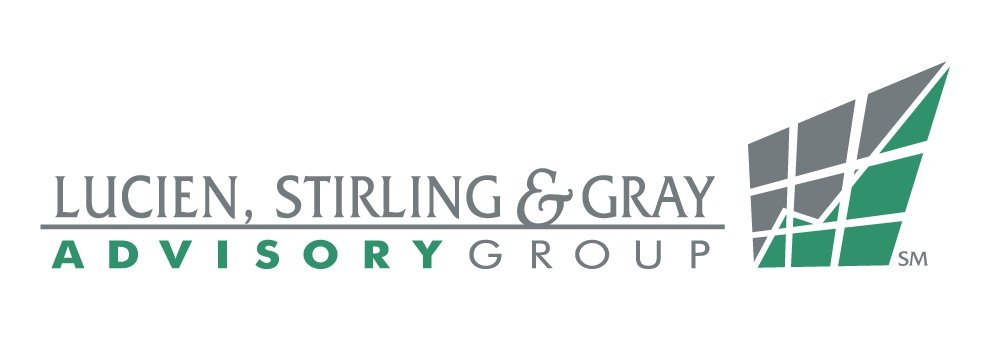Before You Kick the Habit…
By - The LSG Team
Do you ever feel like you are on autopilot?
You brush your teeth when you wake up. You click the seatbelt when you get in the car. You pour that cup of coffee before you sit down at your desk in the morning. These are some habits we do daily that, over time, become second nature. We don’t decide to do these things, we just DO them.
In one of my latest reads, “Better Than Before – Mastering the Habits of Our Everyday Lives” the author Gretchen Rubin describes a habit as involving a “lack of decision-making because it’s already been decided.” She makes the point that when we are required to make a decision, no matter how big or small, we tax our self-control.
And, here is a real shocker: we all have limited self control. That is why habits can help us. They can take the constant tax of decision making out of the equation.
Positive habit-forming contributes immensely to successful investing too. For illustration, let’s look to another well-known “habits” book by Stephen R. Covey, “The 7 Habits of Highly Effective People,” as an example.
His first three “habits” can easily be applied to “highly effective investors”:
Be Proactive – Don’t wait until the time seems right to invest or save, make it automatic! Numerous studies show that people who set up automatic investment plans accumulate much more over time. Compounding returns over even just 5-10 years can make a tremendous difference in the accumulated value, especially in long-term investments such as retirement.
Begin with the End in Mind – Ask these questions: What do you see yourself doing? Who do you see yourself doing it with? What is it going to cost? Envision what you need or what you want and plan towards it. Everyday steps can lead to powerful transformations.
Put First Things First – Prioritizing our lives can be especially challenging. Covey uses a great illustration to teach his “First Things First” habit. In front of a class full of business students, he pulled out a one-gallon, wide-mouthed mason jar and a dozen fist-sized rocks. He placed them one-by-one into the jar. When the jar was filled to the top and no more rocks would fit inside, he asked, “Is this jar full?” Everyone in the class said, “Yes.” Then he said, “Really?” He reached under the table and pulled out a bucket of gravel. Then he dumped gravel in and shook the jar causing pieces of gravel to work themselves down into the spaces between the big rocks. Then he smiled and asked the group once more, “Is the jar full?” By this time the class was onto him. “Probably not,” one of them answered. “Good!” he replied. And he reached under the table and brought out a bucket of sand. He started dumping the sand in and it went into all the spaces left between the rocks and the gravel. Once more he asked the question, “Is this jar full?” A student piped up, “no,” when Covey pulled out a pitcher of water and began to pour it into the jar, the water seeping between the cracks and crevices until it was filled to the brim. The point of the demonstration is to show that it is important to identify the “big rocks” in our lives first. For many of our clients who are now entering their sixties, those big rocks include planning for their parent’s care, right-sizing their home, and perhaps college funding for grandkids. They’ve found that by doing things in the correct order, there’s room for more. Sadly, people who don’t have a well-defined strategic plan in place spend their time and assets on the small things (sand), and they run out of room for the bigger, more important things (big rocks).
It’s not easy, but some habits we can set automatically – think your 401(K) savings, your monthly dollar cost averaging plan into your investment accounts, and even auto-donating monthly to your favorite charity. Saving and investing habitually does not tax our self-control, because there is no decision to make – it’s already been decided! You take the pressure and the anxiety off yourself.
Going back to Gretchen Rubin’s “Better Than Before”, there is an entire chapter on monitoring where she points out that “we manage what we monitor.” We do better when we keep a close track of our actions, such as eating, drinking working, spending. For many, monitoring spending, investing, and saving does not sound too appealing. That’s where a trustworthy advisor comes in. Certainly we help many clients to make the initial decision to invest or save, but our service does not stop there. We also help them establish “automatic” habits of auto investing in retirement accounts and also college funding accounts. We coach and monitor client behavior to ensure they stay on the right track. In turn, our clients get a sense of comfort from the accountability, and a growing sense of confidence as they get closer and closer to a specific goal.
Forming the habits I am talking about helps you free up time and money for new and unusual experiences (like river cruising down the Rhine, wine tasting in New Zealand, or learning a new language) that bring new meaning and enrichment to a life that can seem routine. So set up some life changing habits and then go about to change up your routine!
Links to Resources:
Better Than Before – Mastering the Habits of Our Everyday Lives by Gretchen Rubin

